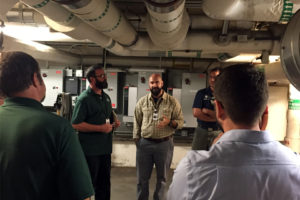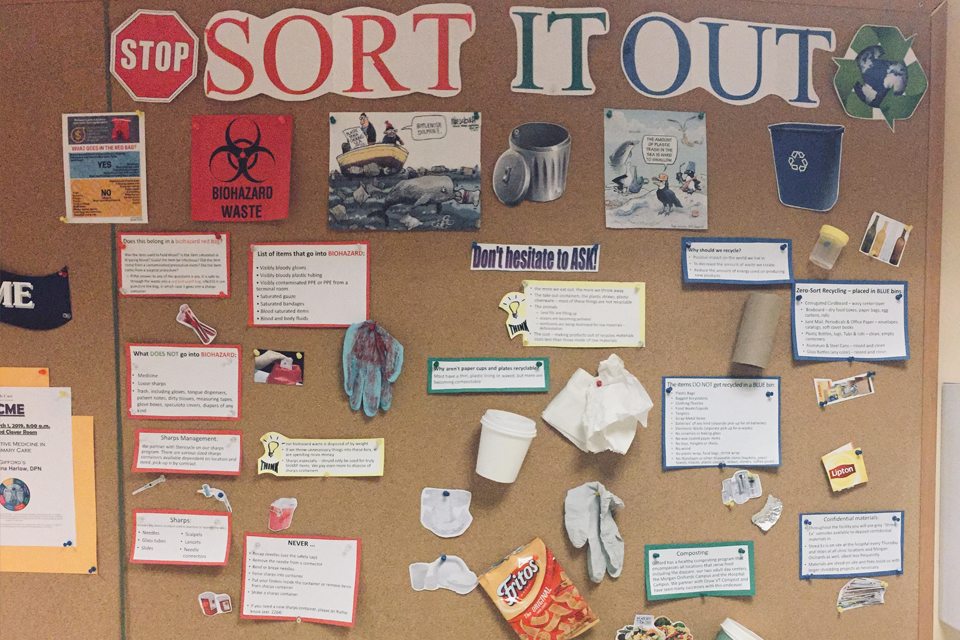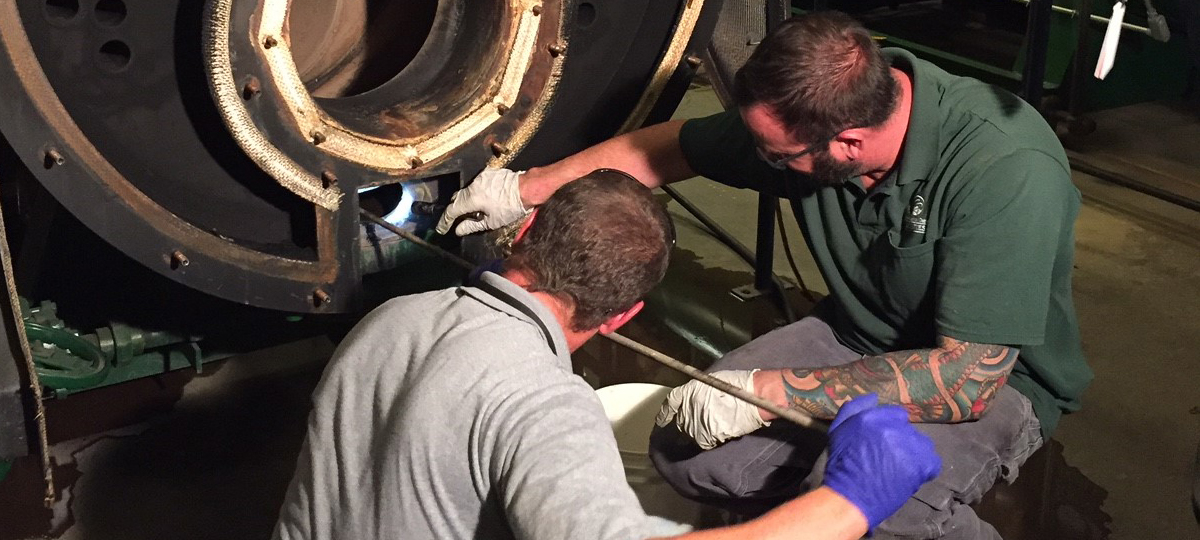
A #GreenerGifford strengthens our bottom line
Gifford staff and providers demonstrated their commitment to the environment and energy efficiency in innovative ways over the course of 2018. From actively participating in a new partnership facilitated by Efficiency Vermont to redoubling food composting efforts, their dedication helped not only to create a greener Gifford but also yielded significant cost-savings—annual savings totaling $52,951, according to a Nov. 30 report by Efficiency Vermont—and laid the groundwork for savings for years to come.
“We all can save energy here, and affect it,” said Gifford Facilities Manager Patrick Giordano of the role employees have in fostering a more efficient Gifford. “It’s great to educate about what we are doing because we’re making a real difference and our employees are engaged. Being more energy efficient not only helps us achieve our financial goals, but also decreases our carbon footprint and contributes to improved air quality in Vermont.”
That “real difference” can be seen in improvements like a new boiler, which Efficiency Vermont estimates will result in first-year energy savings of $6,684 in addition to reducing “statewide energy consumption [and improving] our environment by saving an estimated … 427 MMBTU of fuel and 68,727 pounds of carbon emissions per year.”
Most significantly in 2018, Gifford joined Continuous Energy Improvement (CEI), an energy management partnership of nine hospitals coordinated by Efficiency Vermont. CEI provides Gifford with technical assistance, education, and support to develop a comprehensive approach to energy management in order to reduce waste, improve energy performance over time, and cut costs.
As a CEI partner, Gifford’s main focus is its Critical Access Hospital, which in 2015 achieved ENERGY STAR® certification from the Environmental Protection Agency (EPA), placing the facility in the top 25 percent of energy-efficient hospitals in the United States. Ultimately, CEI outreach and education will reach all Gifford locations throughout central Vermont.
“The CEI partnership reinforces our commitment to energy efficiency, which strengthens our bottom line and enables us to further invest in patient services and facility improvements,” said Gifford President and CEO Dan Bennett. “We look forward to working with Efficiency Vermont to assess current energy performance and develop a comprehensive plan to continually improve performance at the hospital, as well as share outreach and education with team members across all Gifford clinics.”
Efficiency Vermont provides Gifford and other CEI partner hospitals with energy performance assessments, education in identifying savings opportunities, recommendations for optimal approaches, and assistance in creating long-term energy-management plans and employee engagement strategies. In addition, representatives of partner hospitals participate in workshops, member-facility walkthroughs, and networking events to gain awareness of best practices. In September, Gifford hosted partners for an Efficiency Vermont workshop that included a behind-the-scenes tour of the medical center’s energy-related operations.

Facilities Manager Patrick Giordano, center, conducts a tour at Gifford with Efficiency Vermont and Continuous Energy Improvement (CEI) partners.
“Hospitals have some of the largest energy needs in the state,” said Efficiency Vermont Director Karen Glitman. “They’ve made a commitment to prioritize energy considerations in every aspect of their operations. As a result, they’ll see a significantly greater return on their efficiency investments than by viewing energy savings as a series of unrelated upgrades. In other words, they’re not only installing efficient equipment, they’re also using it in the most efficient way for their specific needs.”
At Gifford, Giordano and the facilities team take full advantage of the CEI partnership to evaluate systems to ensure they are operating optimally. For example, in the fall, with guidance from Efficiency Vermont, they brought in a mechanical contractor to conduct a steam trap survey to find efficiencies. First-year energy savings for related improvements are estimated at $9,586. They also worked with an engineering consultant to conduct a chilled water retro commissioning and capacity study to assess whether the hospital’s chilled water system is working as efficiently as possible, and whether the facility has capacity to expand or replace older equipment with more efficient equipment.
But it’s not only large-scale energy systems that are evaluated.
“On any project, big or small, we include Efficiency Vermont,” said Giordano, citing the installation of new LED (light-emitting diode) lights in the hospital pharmacy as one example. The new bulbs are part of Phase 1 of Gifford’s LED lighting project, which will replace all bulbs at the hospital by the end of Fiscal Year 2019.
“The lighting project will result in significant savings to the institution,” he said.
Continually measuring performance of systems is critical to achieving efficiency.
“The art of energy savings is to use technology to be more efficient,” said Giordano during a facilities tour that included the medical center’s Direct Digital Control system, which, among other functions, can control temperature anywhere in the facility. “It’s not just about replacing things. It’s about fine-tuning and making adjustments.”
Committed to the Cause: #GreenerGifford

This Energy Committee bulletin board reminds Gifford staff and visitors to sort their recycling.
In October 2018, our Energy Committee, comprised of volunteers from across departments, launched a #GreenerGifford campaign. The committee shared simple steps we all can take, at work and at home, to conserve energy—from changing out our bulbs to LEDs to working with Efficiency Vermont to conduct assessments and address leaky buildings.
“Our goal is to demonstrate a measurable decrease in our energy consumption and landfill and hazardous materials, while simultaneously increasing our recyclables and compostables,” wrote Dr. A. Nicole Thran in her blog post announcing the campaign. “Let’s work together as friends, neighbors, and citizens to decrease our energy usage and create a #GreenerGifford.”
On the composting front, Grow Compost of Vermont presented Gifford with a Certificate of Environmental Stewardship for diverting 83,200 pounds of food scraps from disposal in 2018. According to Grow Compost, diverting 83,200 pounds is equivalent to providing electricity to three homes in a year, or preventing 3,370 gallons of gasoline from being used, or sequestering carbon equivalent to 28 acres of forestland.
“Your efforts help protect Vermont’s environment by reducing greenhouse gases and mitigating climate change, extending the life of Vermont’s landfill, and building organic soils used by home gardeners, landscapers, farmers, and possibly your business. On behalf of all of us at Grow Compost, thank you for being a critical part of the food cycle.”


